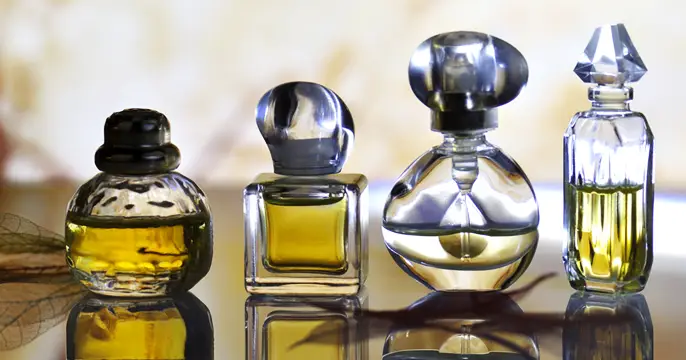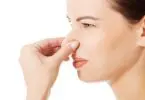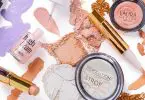Who doesn’t love sitting next to a person who smells great? When you’re walking down the street and someone who smells really good passes you by, your first instinct is to savor the scent.
This is precisely the reason why a lot of people look for that special fragrance or perfume that perfectly suits their body chemistry. Whenever the fragrance is used, that special scent can become uniquely your own.
Why Do We Love Perfume?
Although there are many fragrances available in the market today, the most popular is Eau de Parfum or perfumes. The level of concentration on the formula of perfume products is between 8% and 15%. As compared to Eau de Toilettes which have a 4% to 8% concentration or Eau de Colognes which have a 3% to 5% concentrations, perfumes have the longer-lasting, stronger-smelling scent.
Why do we love perfumes in the first place? Research shows that perfumes have a positive effect on people, particularly women, because of pheromone levels. The same studies show that nearly 80% of women will make a perfume purchase at least once a year, thus the huge market for perfumes and other fragrances.
What You Need to Know Before Making Your Own Perfume
Your goal is to smell great but you don’t want to spend hundreds of dollars on a designer or custom-made perfume. What’s the solution? Make your own perfume! Here, we will take a look at the basic things that you need to know before making your own signature scent. First, there are families of fragrances which are similar to each other yet have different notes. Take a look at a quick list of some scents and what their smells tell you about your favorite fragrances:
- Leather, musk, honey, dairy cream, a burning candle.
The smell of these items equates to natural animal essences. Some examples are musk, civet, and ambergris. In their natural state, the odors may seem unpleasant but a weaker, synthetic form can be used in perfumes. The result is a fragrance which has that dark, mysterious, exotic element to it.
- Freshly-cut timber, church incense, cinnamon, the Earth after rain, newly-cut grass.
These things have a spicy, woodsy, bitter scent. Other smells that fall under this fragrance category are clove, seeds, roots, barks. In its pure state, some of these scents have a bitter quality but when blended with other smells, the resulting fragrance can be quite refreshing.
- Christmas tree, fresh strawberries, mint leaves, freshly-washed linens, lemons.
If you like herbs, fragrances with these items will definitely suit you. eucalyptus, camphor, lavender, balsam, rosemary, and other herbs have a refreshing quality and when blended with other ingredients, they are known as green fragrances or perfumes.
- Baby powder, magnolia blossoms, Lily of the Valley honeysuckle, rose blossoms.
Finally, there are those who love fragrances with floral notes. In its concentrated form, the smell of rose blossoms can be quite cloying but when used with just-the-right concentration, the resulting fragrance is divine.
Most of the perfume products that you can buy in the market fall under these four categories. When making your own scent, you can choose fragrances which belong to the family for a pleasant blend, or ones from different families for an exciting contrast. Read on to find out how you can make your own perfume at home.
10 Ways to Concoct Your Own Perfume at Home
Experimentation is key if you would like to succeed at concocting your own signature scent. To get you started, here are the top ten ways on how you can make your own perfume at home:
1. Make your own cologne.
To make your own cologne, you need one part oil, six parts perfume diluent or vodka, and one part fixative which can be liquid benzoin or powdered orrisroot. For the oils, you can use commercially distilled ones. Using these oils in their purest form needs to be done very sparingly, otherwise, the scent might be too cloying. They should also be stored in a cool, dry place and colored glass bottles are preferred to prolong the shelf life of the scented product.
2. Mix together an after-bath splash.
For an after-bath splash, you can mix one part oil with ten parts of vodka or perfume diluent, and one part fixative which can be liquid benzoin or powdered orrisroot. What’s good about making perfume this way is that you do not have to worry about chemicals, dyes, carcinogens or other synthetic ingredients which may harm your health. The bonus is that they cost a lot less to make.
3. Make your own perfume.
When making your own perfume, remember that you can use different essential oils to come up with the base note, the middle note, and the top note. A mixture of essential oils, alcohol, and water can be the foundation of your mixture. For instance, you can make a uniquely-scented perfume using the following ingredients:
- ½ ounce Jojoba or sweet almond oil
- 2 1.2 ounces ethanol or vodka
- 2 tablespoons spring or distilled water
- Coffee filter
- Dark-colored glass bottle
- 25 drops essential oil
- 6-7 drops each of base note, middle note, and top note essential oils
The procedure involves adding the oil to the bottle, then adding in the base note, middle note, and top notes. Changing the order will affect the resulting scent. If you want, you can add a couple of drops of bridge note essential oils. Pour in the alcohol, shake the bottle for two minutes then let sit for 48 hours or up to six weeks. The scent of your homemade perfume will usually vary over time, becoming the strongest on the sixth week. Once you achieve the scent that you want, add two tablespoons of spring water, filter and pour onto the final bottle.
4. Follow this formula for an oil-based perfume.
To make an oil-based perfume, fill a bottle three-quarters up with your base oil. Shake the bottle then add the middle note essential oils and the base note essential oils. If you must add more oil, make sure to do so in very small increments because it will affect the final smell of your concoction.
5. Make perfumes with a soothing effect.
To make a perfume that promotes tranquility and has that soothing effect, mix together four drops of Cedarwood oil, 2 drops of Clary Sage, a drop of grapefruit oil and a couple of drops of mandarin oil. Follow the same procedures as mentioned above and you can create a perfume with a soothing effect.
6. Concoct a perfume with a floral note.
If you prefer floral scents, all you need are two cups of water and two cups of fresh chopped flower blossoms. In a bowl, put cheesecloth filled with a cup of the flower blossoms you prefer and pour water over them until they are completely covered. Let the liquid sit overnight. The next day, gently squeeze the now-scented water into a small pot and simmer until there is only about a teaspoon left to the liquid. This serves as your floral perfume, which has a shelf life of about a month.
7. How about a perfume with a citrusy scent?
For a sensuously deep, citrusy scent, you can use an organic sweet orange essential oil.
An alternative recipe is to use two cups distilled water, three tablespoons vodka, one tablespoon lemon, five drops of Lemon Verbena, 10 drops of Mandarin oil and 10 drops of orange oil. Mix the fruit peels with vodka in a jar and let sit for one week. Strain the liquid, add the essential oils and distilled water then let sit again for another two weeks. Mix the jar well and place the final solution in a beautiful glass perfume container.
8. Mix together a lavender-and-lime perfume.
The ingredients for this perfume are one cup distilled water, a cup of Vodka, three drops of lemongrass essential oil, 10 drops of lavender and ten drops of lime. Combine all the essential oils and shake well. Set aside for three weeks. Add the distilled water and let the perfume stand again for another week. Make sure to shake the bottle at least once a day during the treatment period. Once you are satisfied with the resulting scent, you can transfer the mixture in colored bottles and store in a cool, dry place.
9. Make perfumes with a sweet, summery scent.
Some of the essential oils that you can use to create a sweet, summery scent are chamomile, cardamom, cedarwood, and geranium.
10. Put together a perfume with a refreshing smell.
Finally, you can formulate a perfume with a refreshing smell using any or a combination of these essential oils: peppermint, rosemary, lemon, sage, and juniper berries.
There are plenty of other recipes that you can follow in order to make your own perfume. Coming up with your own signature scent this way will not just save you money, but make you smell great all day long as well.






